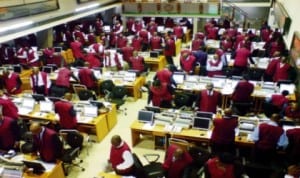News
Vested Interest Killing Nigeria -Sanusi
Central Bank of Nigeria (CBN) Governor, Malam Sanusi Lamido Sanusi, says the huge vested interest of economic and political officeholders has been the major barrier to Nigeria realising its huge economic potential.
Speaking on the topic “Overcoming the fear of vested interest” on an occasion organised by a group of youth under the aegis of TEDx in Abuja, Sanusi said that, in 1960, Nigeria was the preferred investment destination with per capita income higher than that of countries like Japan and South Korea.
However, over 53 years later, he said, Nigeria which has always had potential is still not able to realise that potential when countries like China, Indonesia, Japan, Korea, Vietnam and Brazil have since turned the potential that they had into reality.
“In four years or so that I have been in Abuja, I have come to understand that we need to overcome the power of vested interest. And I will talk with you a little bit about my own experiences at the Central Bank and use that as a basis or template for what I think we need to do if we must change this country,” Sanusi said.
Since the discovery of oil, the Nigerian state has been exploited to serve the vested interest of the rich minority at the expense of the poor majority, he noted.
The CBN governor highlighted some instances where vested interest took precedence over public interest in the country in the banking sector, petroleum subsidy scandals, among others, and urged the youth to use these as examples of what they can do if they want to confront these vested interests and deal with them and protect the poor people of this country.
“The fundamental character of the Nigerian state is that, for decades, since we found oil it has existed not to serve the people but as a site for rent extraction to serve a tiny minority in the country’s political power. And it doesn’t matter where this group comes from – whether it is north or south or Muslim or Christian or military or civilian. The state has always been a site for rent seeking with the exception of a few years when we have had development. And this is at the heart of the problems of the country,” he stated.
He spoke on the Nigerian paradox: “A country that specialises in exporting what it does not produce and importing what it produces; one of the world’s largest producers of crude oil that does not refine petroleum products but imports refined petroleum products; the world’s largest producer of cassava that does not produce starch or ethanol. Large tomato belt yet the world’s largest importer of tomato paste. A country that from my childhood I have heard had the potential of being a world power but every day we talk about potential. Today, we still talk about the potential of Nigeria and yet China, Indonesia, Japan, Korea, Vietnam, Brazil, all of these countries have turned the potential that they had into reality. What is the one thing that we need to do to break this barrier that faces us?”
On his experience: “Shortly after I came in and when we conducted investigations, I discovered that the Nigerian banking system was infested with the same corruption of the entire system in the country: that a number of bank chief executives had taken their banks and fleeced them of depositors’ money to buy property all over the world. And just like people do in ministries, in government agencies, or whenever they have the opportunity in oil companies, the banks were themselves a site for rent seeking.
“There was one chief executive officer that took away from her bank over N200 billion, and where was this money taken? Purchase of properties.
We recovered from one CEO 200 pieces of real estate in Dubai, real estate in Johannesburg, in the United States of America, apart from shares in over 100 companies and all of that was purchased with depositors’ money.
“For another CEO we got a judgment against that CEO for N142 billion stolen from the bank taken to buy shares and manipulate the shares of his own institution, and also transferred outside to purchase properties.
“Now, the first CEO we were able to convict, we recovered these assets and got a six months’ sentence and sorted it out. The second CEO, we finished our case established in Nigeria that we have a case in Nigeria, in the UK; two weeks before the closing statements were made the judge was miraculously promoted to the Federal Court of Appeal after three years of trial — at the very end of trial — because someone, a very popular religious leader with hundreds of thousands of supporters, carried him to the political authorities and the system that was supposed to protect depositors and handle criminals was used and manipulated to promote a judge so that he would not convict a thief. Now, this is an example of the kinds of things that happen in the country that prevent it from realising its full potential.
“Now, to my experience with the banking reforms, I observed the following: After the discovery of the things that happened in the banks, the most important thing was to take a critical decision that would pit us against powerful political and economic forces. We were dealing with chief executives that, in 2009, had become invincible. They were in the seat of power; they had economic power and had bought political protection. They were into political parties, they had financed elections of officers and they believed that nobody could touch them. And every time I said it was time to take action people said to me, ‘You can’t touch those people; you will be sacked’. Or, ‘You can’t touch these people; they will kill you’. And I said, you know what, we are going to take them on.
“And we took a decision to remove them, and, you know what, we removed them and nothing happened. We were going to prosecute them, put them in jail, and we put one of them in jail. We were going to recover these assets because the way the Central Bank operated in the past was such that these guys took all the money and the Central Bank said the banks have failed. The banks that we saved had N4.4 trillion in deposits. They had 8 to 10 million customers. But the government and the system had always betted on the side of the rich people. These 8 million customers — the old woman in Gboko or Yenagoa or Maiduguri who has struggled to save money for 40 to 50 years — and you wake up one day to say that the bank has failed and the money is gone. The man with his pension money in the bank, his children’s school fees, the medical bills, and you wake one day to say the bank has failed.
“When people say a bank failed, it is like seeing a man whose throat was slit and you say the man died; he didn’t die, he was killed. And those that murdered the banks have always walked free – they become senators and governors, they become captains of industry, they sit on the boards of banks and continue to be relevant in the system. Against millions of Nigerians who don’t have a voice.
“Nobody knows the number of people who have died as a result of failed banks. Because they were sick and could not pay the hospital bills, because their money was locked up in banks that had failed. Nobody knows the number of children whose parents could well afford to pay their school fees but they dropped out of schools because banks were mismanaged. Use these as examples of what you can do if you want to confront these vested interests and deal with them and protect the poor people of this country. But the banking industry is one sector in Nigeria; what is happening in other sectors?
“Take the oil industry: in 2009 this country paid N291 billion subsidy for petroleum products. By 2011, this number had jumped to N2.7 trillion. Did we start consuming 10 times the level of petrol? Did we have 10 times the number of cars? Did the population of Nigeria multiply 10 times? I do not believe these numbers. I screamed against these numbers and other people screamed and there have been investigations, and it was discovered that a lot of that money never went into fuel subsidy that was consumed by Nigerians. But people in this country had produced pieces of paper and gone to PPPRA and they stamped those papers claiming that they brought in petroleum products and actually paid them subsidy. And those pieces of paper said I brought 40,000 metric tonnes of petroleum product on so and so ship, and we discovered that that ship was nowhere near the shores of this country on the dates indicated.”
News
Ibas Inaugurates RSIEC, Service Commissions, Healthcare Board In Rivers …Charges Appointees To Embrace Principles Of Service
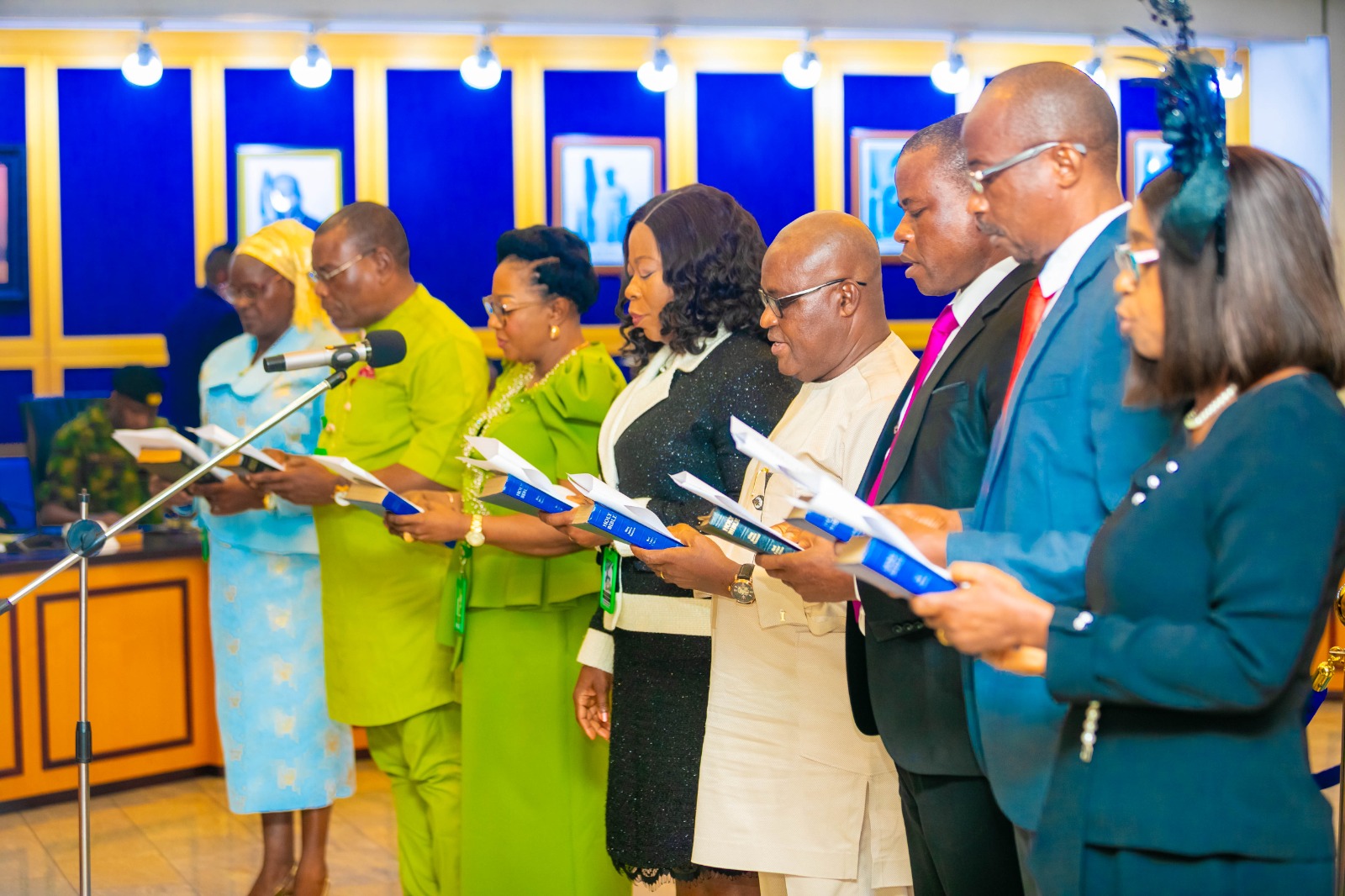
The Administrator of Rivers State, Vice Admiral (Rtd) Ibok-Ete Ibas, has charged newly appointed Board members to uphold the highest standards of discipline, competence, integrity, and unwavering dedication in their service to the State.
He emphasized that such commitment is critical to stabilizing governance, restoring democratic institutions, and advancing the principles of good governance in the State.
This was contained in a statement by the Administrator’s Senior Special Adviser on Media, Hector Igbikiowubo on Monday.
Ibas issued the charge on Monday while inaugurating the reconstituted Rivers State Independent Electoral Commission (RSIEC), Rivers State Civil Service Commission, Rivers State Local Government Service Commission, and the Rivers State Primary Health Care Management Board at Government House, Port Harcourt.
The Administrator urged the new appointees to embrace their roles with diligence, patriotism, and a commitment to transforming Rivers State through excellent service.
Addressing the Chairman and members of RSIEC, Ibas underscored their pivotal role in ensuring credible local government elections that reflect the will of the people.
“Your task is clear but demanding: to conduct free, fair, transparent, and credible elections at the grassroots level. You must resist bias, favoritism, and external interference while restoring public confidence in the electoral process,” he stated.
“The independence of your actions is crucial to sustaining peace, stability, and grassroots governance. I urge you to act with fairness, impartiality, and professionalism—even in the face of difficult choices,” Ibas added.
The Sole Administrator also charged the Rivers State Civil Service Commission on the need to eliminate mediocrity and foster a culture of excellence through merit-based recruitment, training, and promotions.
“The civil service must transition from favoritism to competence, integrity, and accountability. Your commission will lead reforms, including digital transformation and standardized practices across ministries, departments, and agencies,” he said.
He disclosed that extensive training programmes are underway, with a committee set up to overhaul the public service framework for greater efficiency.
Meanwhile, Ibas urged the Rivers State Local Government Service Commission to ensure professionalism and discipline in local government administration.
“As the closest tier of government to the people, you must drive reforms that insulate the system from politics and mediocrity. Your mandate includes merit-based recruitment, training, and enforcing standards for effective service delivery,” he stated.
In the same vein, the Administrator charged the Rivers State Primary Health Care Management Board with revitalizing healthcare delivery across the state’s 23 local government areas.
“Primary healthcare is the foundation of a sustainable health system. Your board must ensure facilities are adequately staffed, equipped, and operational focusing on maternal health, immunization, malaria control, and community health services,” he said.
He emphasized data-driven operations, incentives for rural health workers, and restoring the referral system to improve healthcare access.
He also assured the Board of sustained government support, including funding, for the effective discharge of their mandates but warned that board members would be held accountable for their performance.
The newly inaugurated members include: RSIEC: Dr. Michael Ekpai Odey (Chairman) with Prof. Arthur Nwafor, Prof. Joyce Akaninwor, and others as members.
Civil Service Commission: Dr. Livinus Bariki (Chairman), Amb. Lot Egopija, Mrs. Maeve Bestman, and others.
Local Govt. Service Commission: Mr. Isreal Amadi (Chairman), Rear Adm. Emmanuel Ofik (Rtd), Dr. Tonye Pepple, and others.
Primary Health Care Board: Dr. Dawari George (Chairman), Dr. Chituru Adiele (Executive Director), Prof. Kaladada Korubo, and representatives from key ministries.
News
Rivers PDP Debunks Sale Of LGA Election Forms
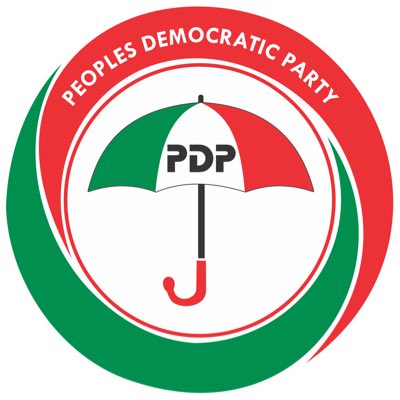
The Publicity Secretary of the Peoples Democratic Party (PDP) in Rivers State, Dr. Kenneth Yowika, has debunked claims that the party has commenced sale of forms for chairmanship and councillorship elections across the 23 local government areas of the state.
Yowika made the rebuttal in a statement made available to newsmen on Wednesday, describing the publication on the social media as baseless and untrue.
He urged members of the PDP to disregard the claim, saying that official communication regarding the sale of forms would be disclosed through the appropriate channels.
“With reference to information trending on social media, it has been falsely claimed that the sale of forms for Chairmanship and Councillorship elections in the 23 Local Government Areas (LGAs) of Rivers State will begin soon.
“However, the party has firmly denied these rumours, stating that they are baseless and untrue.
“The party has its own established methods of reaching out to its numerous supporters.
“The People’s Democratic Party, a law-abiding organisation, will patiently await the release of guidelines from the recently inaugurated Rivers State Independent Electoral Commission (RSIEC) before considering any sale of election forms.
“The PDP is urging its members to remain calm as official communication regarding the sale of forms will be disclosed through appropriate channels,” the statement read.
Enoch Epelle
News
South-South contributes N34trn to Nigeria’s economy in 2024 – Institute
Prof. Pius Olanrewaju, President of the Chartered Institute of Bankers of Nigeria (CIBN), has stated that the South-South region contributes N34 trillion to country’s economy in 2024.
He made the remark at the South-South Zonal Banking and Finance Conference in Calabar, yesterday.
He spoke on the theme, ‘’Building An Inclusive South-South: Economic Diversification as a Catalyst For Development.’’
Olanrewaju, who quoted the data from the Cable Data Index, said the feat was more than 21 per cent of Nigeria’s real Gross Domestic Product (GDP).
The president described the growth as ‘’ impressive,’’ saying that it was not driven by oil alone but significant expansions in trade, services, and the creative industries.
According to him, to fully harness this potential, coordinated financial, technological, and policy support is essential.
“As we work to reposition the South-South for broad-based prosperity, the financial system must play a central role, not merely as a source of capital, but as a catalyst for innovation, ideas incubation, and inclusive economic growth.
“This conference, therefore, provides a strategic opportunity for stakeholders to reimagine the South-South economy, not merely as a resource belt, but as a region of diverse capabilities and resilient enterprises.”
Olanrewaju added that Nigeria must move beyond old models and chart a new course for the development of the South-South region, where financial institutions and stakeholder collaborate to diversify the economy for shared prosperity.
He, however, commended Gov. Bassey Otu for his pledge of land for CIBN Secretariat in Cross River and being the first sitting governor to willingly undergo and complete the Chartered Bankers Programme.
On his part, Gov. Otu said that the conference discussion on the economic diversification in South-South region was timely against the backdrop of global trade and economic volatility that was affecting the nation’s economy.
Represented by his deputy, Mr Peter Odey, Otu said the South-South region must now act with urgency to diversify its economy while leveraging its shared natural endowment in agriculture and extractive resources.
“This conference must help develop tailored financial solutions that reflect the unique strengths and realities of states like Cross River in the south-south.
“Diversification should be evidence-based and must be backed not just by financial advice but project focused financing and real investment support,” he noted.
He said that Cross River had taken the bold step to invest in its agricultural sector by launching an Agro processing hub.
Otu further said that the state had invested in aviation by acquiring more aircrafts for Cally Air, construction of the Bakassi Deep Seaport and injecting N18 billion in its tourism sector.
Similarly, Mr Tolefe Jibunoh, Cross River Branch Controller of the Central Bank of Nigeria (CBN) said that the region was blessed with natural resources, cultural diversities and immense human potentials.
Jibunoh, who was represented by Mr Segun Shittu, Head, Currency Control Office, CBN, Calabar, noted that strategic diversification could unlock unprecedented opportunities for growth in the region.
He added that the CBN remained steadfast to maintain monetary possibilities and promote a sound financial system as a catalyst for sustainable economic development for the benefit of all.
-
Niger Delta3 days ago
Adopt African System Against Crime, Don Urges Security Agencies
-
Politics3 days ago
2027: Group Vows To Prevail On Diri To Dump PDP For APC
-
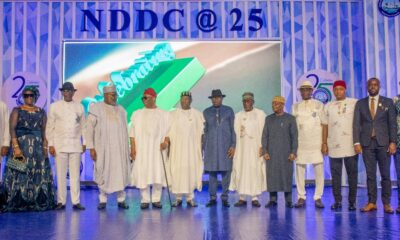
 Features3 days ago
Features3 days ago25 Years After: NDDC Celebrates Milestones Of Impactful Development
-
Politics3 days ago
Atiku’s Exit No Problem To PDP – Makinde
-

 News3 days ago
News3 days agoRivers Police Arrest Notorious Cultist, Recover Sophisticated Ammunition
-
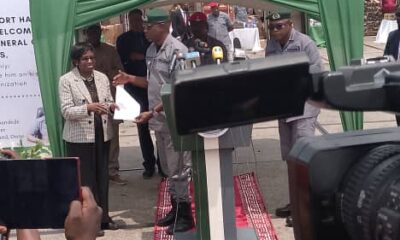
 Rivers3 days ago
Rivers3 days agoNigeria Customs Intercepts 16 Containers Worth Over N20bn
-
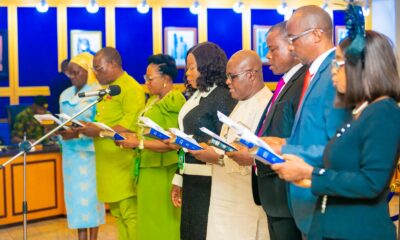
 News3 days ago
News3 days agoIbas Inaugurates RSIEC, Service Commissions, Healthcare Board In Rivers …Charges Appointees To Embrace Principles Of Service
-
Rivers3 days ago
Monarch Cautions Youths Against Illicit Drug Consumption

